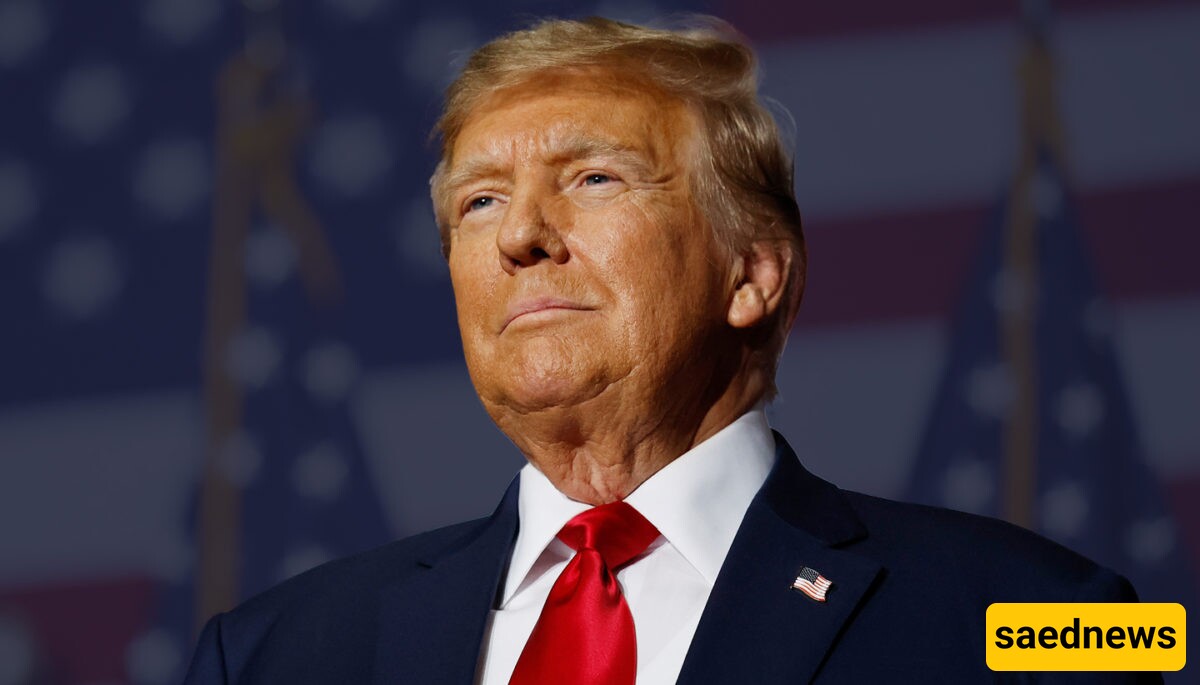SAEDNEWS: The White House's temporary halt on foreign aid deals a blow to anti-revolutionary activists, reflecting both U.S. economic struggles and disappointment in anti-Iran efforts.

According to SAEDNEWS, these days, the positions, actions, and approaches of Trump have angered anti-revolutionary activists more than anyone else. They, who spent the last four years hoping for Trump’s return to the White House, were celebrating the "final days of the Islamic Republic" following his election as the 47th President of the United States two months ago. However, they were suddenly caught off guard with the news of the suspension of funding from their benefactor. While the overthrow groups had been eagerly awaiting Trump’s return, hoping that upon entering the Oval Office, he would take a hard stance against the Islamic Republic and initiate "maximum pressure 2," they have recently been facing continuous shocks.
Since Trump assumed office as President of the United States, his stance on Iran has not met the expectations of overthrow activists. The issuance of an order to halt all foreign aid from the U.S. president has dealt another major blow to the anti-revolutionary camp. Although this directive is temporary, the possibility of a major revision in these funds has caused concern among the overthrow groups about the future of their activities.
The U.S. government’s financial support for opposition groups has been allocated since 2009 under the "Near East Regional Democracy (NERD)" program to various individuals and groups. However, a list of U.S. aid to Iranian media and anti-regime activists has been published since 2004.
Research indicates that currently about 30 anti-revolutionary Iranian groups and entities operating in the U.S. have been affected by Trump’s directive. Institutions such as "Tavana," "Radio Zamaneh," and "Iran Human Rights Organization" are among the organizations whose funding has been cut. Additionally, it is said that networks such as Iran International and Voice of America will also be impacted by this order.
Activities in the human rights field
Activities in the women’s rights field
Funding for internet freedom
Activities in support of sexual minorities
Funding for religious minorities
Assistance to organizations defined as “foundations”
Charitable support
The suggestion to cut aid to the exiled opposition came from Richard Haass, former President of the U.S. Council on Foreign Relations. He believed that active opposition groups abroad would not yield results for the U.S. and that they only generated financial costs without having the ability to take meaningful actions. According to him, those in opposition who claim that there should be a hard and military confrontation with Iran should be disregarded.
The inefficiency of anti-revolutionary movements and the failure to achieve their envisioned outcomes, along with the prioritization of internal economic issues in the U.S. under the "America First" strategy, have led to the suspension of financial support to the anti-revolutionary groups.
The temporary cessation of U.S. financial aid to anti-revolutionary Iranians, which had previously been provided through foundations, human rights organizations, and various other channels, has sparked anger and concern within the anti-revolutionary camp.
Ladan Bazargan, anti-revolutionary political activist: "Unfortunately, Trump always surprises everyone with his actions. Our hope now should be on Marco Rubio (U.S. Secretary of State). We need to see what the bigger plan of the Trump administration is. Do they want to sit down at the negotiation table with Iran? We shouldn't count too much on the U.S. anymore."
Farzin Nedimi, anti-revolutionary political analyst: "It is a contradiction that a U.S. government that came to power with the slogan of maximum pressure on the Iranian government is now weakening Iranian civil society as its first action."
Mehdi Sarami-Far, analyst at Iran International: "Since fall 2022, the U.S. government has made significant investments in VPNs, which are now at risk with this action."
Jamaloddin Mousavi, BBC Persian presenter: "U.S. officials always said these aids were due to their commitment to human rights, democracy, and free media, but this three-month suspension could harm their activities."
Ferdad Farahzad, presenter at Iran International: "What we've seen from Trump (in dealing with the Islamic Republic) is very different from what many Iranian political activists hoped for before his rise to power. The U.S. government's decision to cut financial support puts millions of Iranians' access to VPNs at risk. This suspension will pave the way for the full implementation of the national internet project."
Ahmad Ahmadian, Iran International analyst: "This decision will disrupt secure communications with Iran."
Maryam Afshang, Iran International journalist: "Organizations that worked to promote democracy in Iran, as well as Persian-language media outlets abroad, have been affected by this order. These institutions and media outlets are silent and waiting to see what happens. About 30 Iranian organizations are currently in confusion, and this will have a significant impact on their human resources."
The anger of the anti-revolutionaries over Trump's decision to temporarily cut foreign financial support is compounded by the fact that, over various periods, the dependence of anti-revolutionary groups and activists on foreign government support has been evident. It shows that, in the absence of popular support, they cannot continue their activities without the financial backing of foreign governments.
Shutdown of the Manoto Network: In mid-February of last year, the closure of the Manoto network made headlines across various media. The main reason cited was financial difficulties, proving that this network could not continue its operations without behind-the-scenes financial support. Now, it appears that Zionists are taking on the role of the new financial backers of this network, and Manoto is seeking to revive its television activities.
End of Profitable Contracts for Masih Alinejad: The revelation of financial contracts between Masih Alinejad and the U.S. government during Trump's first presidency was one of the scandals surrounding this anti-revolutionary figure. It was widely criticized by anti-revolutionaries. In such circumstances, the reduction of widespread support for this anti-revolutionary figure under the Biden administration has led to her criticisms of the Democratic government.

